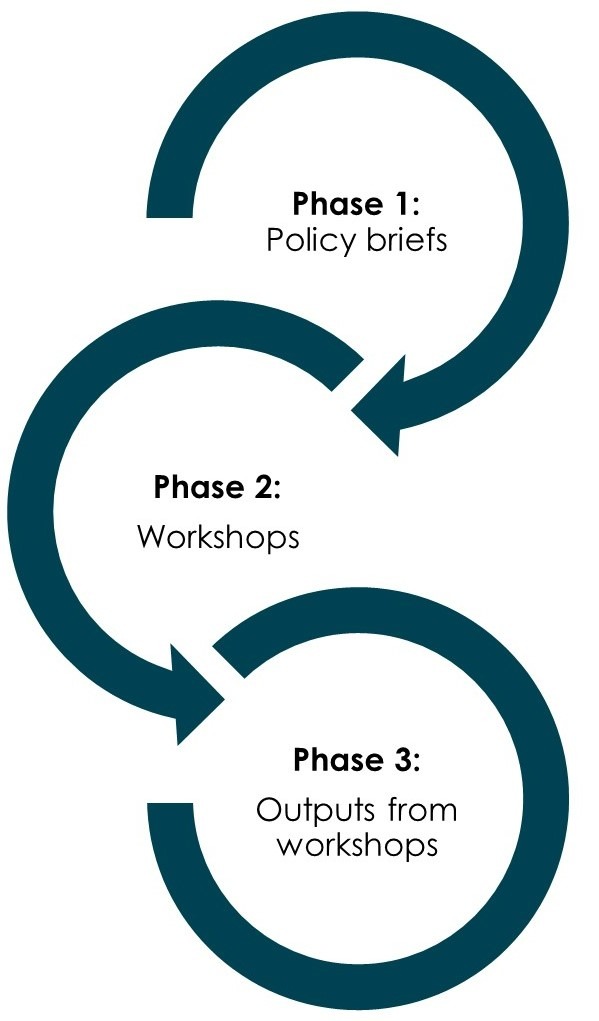Coronavirus-related school closures have resulted in significant disruption to children and young people’s learning in schools and colleges in Wales, as elsewhere. In the year between March 2020 and April 2021, up to 124 classroom days per pupil were lost in Wales. The impact of the disruption on educational progress has been particularly acute for disadvantaged and vulnerable learners. In the longer term, as well as widening inequalities, the Institute for Fiscal Studies warns that losing half a year of schooling (as will be the case for most children), without effective remedial catch-up interventions, will result in school children missing out on an average of £40,000 in lifetime earnings.
The Welsh Government has responded by committing over £150 million in funding for the 2021 to 2022 financial year via the Renew and Reform programme. This includes £35.8 million to continue the bespoke support and mentoring for learners through the Recruit, Recover and Raise Standards programme, retaining the 1,800 full-time equivalent staff recruited in the 2020 to 2021 academic year and maintaining the focus on targeting support at the most vulnerable and disadvantaged learners. Additional investments are also being made by the Welsh Government into the education recovery, such as £15 million being committed to technology in education in 2021/22.
The success of education recovery efforts will be affected by, among other things, the way that schools:
- Build on and potentially develop experiences of distance and blended learning;
- Provide so-called ‘catch-up support’ and their methods and models; and
- Design and deliver teacher professional development.
 We at the Wales Centre for Public Policy and partners have been working with the Welsh Government to ensure that its efforts to support the education system to respond to the challenges posed by the Coronavirus pandemic in schools are informed by the best available evidence and expertise. This first phase of this work involved producing an initial briefing note summarising findings drawn from an initial scan of the evidence on the international education response to the Coronavirus pandemic, and potential implications for Wales, followed by the development of three further policy briefings relating to the topics listed above (i.e., blended teaching and learning; catch-up interventions; and teacher professional development).
We at the Wales Centre for Public Policy and partners have been working with the Welsh Government to ensure that its efforts to support the education system to respond to the challenges posed by the Coronavirus pandemic in schools are informed by the best available evidence and expertise. This first phase of this work involved producing an initial briefing note summarising findings drawn from an initial scan of the evidence on the international education response to the Coronavirus pandemic, and potential implications for Wales, followed by the development of three further policy briefings relating to the topics listed above (i.e., blended teaching and learning; catch-up interventions; and teacher professional development).
For the second phase of this research, the WCPP convened a series of participatory workshops with school leaders and a range of middle tier leaders, such as regional consortia and local authority education leads. The purpose of the workshops was to:
- share the findings of the policy briefings;
- elicit practice-based insights, experiences and examples that can bring the evidence ‘to life’;
- develop insights on implementation; and
- explore how our recommendations could be tailored for particular audiences and might interact with current and planned policy and practice.
The workshops served as a midway point in the project, after which we revised the three main briefings based on emerging research and insights shared during the workshops and created follow-up outputs. The follow-up outputs comprised of practical resources on each of the three topics that draw on the practice-based insights from the workshop, along with the findings outlined in the policy briefings. The aim of these resources is to support educators in Wales to put the evidence findings outlined in the briefings into practice by outlining a useful set of prompts for teachers and leaders.
As well as the written project outputs, presentations given on each of the three briefing topics during the workshops are also available. All project outputs will also be hosted on a Hwb playlist.
You can also hear Becki Bawler and Harry Fletcher-Wood talk to Manon Roberts on our podcast PEP Talk about the challenges posed by the Coronavirus pandemic to the education system in Wales. In it they offer insight into the ways in which the Welsh Government and broader education system could seek to respond; with a particular focus on blended teaching and learning, and teacher professional development.